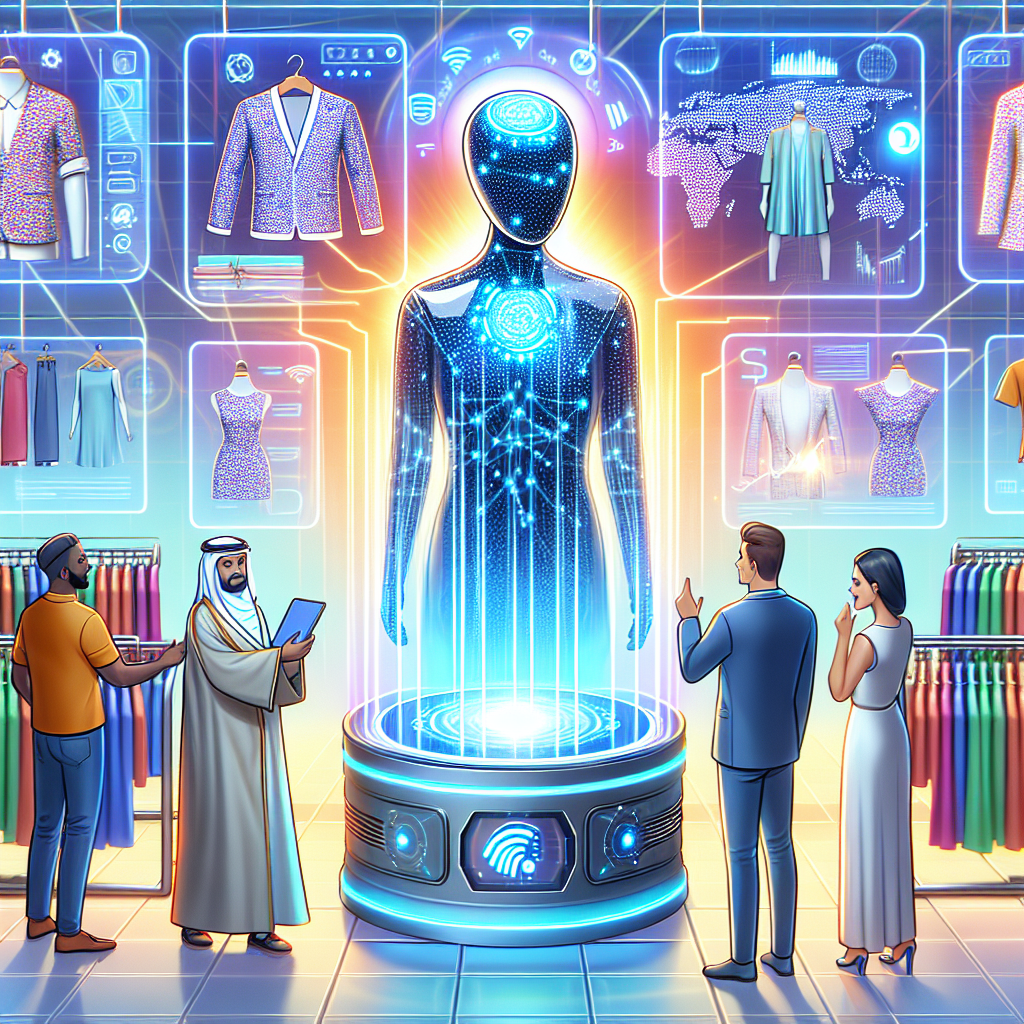The Influence of AI on Fashion Merchandising
In recent years, the fashion industry has seen a rapid transformation with the integration of artificial intelligence (AI) technology. From design to marketing, AI is revolutionizing the way fashion brands operate and connect with consumers. One area where AI is making a significant impact is in fashion merchandising. In this article, we will explore the influence of AI on fashion merchandising and how it is shaping the future of the industry.
What is Fashion Merchandising?
Fashion merchandising is the process of planning, buying, and selling fashion products to meet consumer demand. It involves analyzing market trends, predicting consumer behavior, and managing inventory to ensure that the right products are available at the right time and at the right price. Fashion merchandising plays a crucial role in the success of a fashion brand, as it directly impacts sales and profitability.
How is AI Changing Fashion Merchandising?
AI technology is revolutionizing the way fashion brands approach merchandising. By leveraging machine learning algorithms and data analytics, AI can analyze vast amounts of data to identify trends, predict consumer preferences, and optimize inventory management. Here are some ways in which AI is changing fashion merchandising:
1. Trend Forecasting: AI can analyze social media, runway shows, and online shopping data to predict upcoming fashion trends. By analyzing patterns and trends in consumer behavior, AI can help fashion brands anticipate demand and adjust their merchandising strategies accordingly.
2. Personalized Recommendations: AI-powered recommendation engines can analyze customer data to deliver personalized product recommendations. By understanding individual preferences and shopping behavior, AI can help fashion brands offer personalized shopping experiences that drive sales and customer loyalty.
3. Inventory Optimization: AI can help fashion brands optimize inventory management by predicting demand, identifying slow-moving products, and recommending pricing strategies. By optimizing inventory levels and pricing, AI can help fashion brands reduce costs, increase sales, and improve customer satisfaction.
4. Virtual Styling: AI-powered virtual styling tools can help customers try on clothes virtually and receive personalized styling recommendations. By leveraging AI technology, fashion brands can offer interactive shopping experiences that engage customers and drive sales.
5. Supply Chain Management: AI can help fashion brands optimize their supply chain by predicting demand, improving sourcing decisions, and reducing lead times. By streamlining the supply chain process, AI can help fashion brands reduce costs, improve efficiency, and enhance sustainability.
FAQs
1. How can fashion brands benefit from AI in merchandising?
Fashion brands can benefit from AI in merchandising by leveraging advanced analytics and machine learning algorithms to analyze data, predict trends, optimize inventory, and personalize the shopping experience. By harnessing the power of AI, fashion brands can improve sales, reduce costs, and enhance customer satisfaction.
2. Are there any challenges associated with implementing AI in fashion merchandising?
While AI offers numerous benefits for fashion merchandising, there are also challenges associated with implementing AI technology. These challenges include data privacy concerns, the need for skilled AI talent, and the potential for bias in AI algorithms. Fashion brands must address these challenges to successfully implement AI in merchandising.
3. How can fashion brands ensure the ethical use of AI in merchandising?
Fashion brands can ensure the ethical use of AI in merchandising by being transparent about how AI is used, ensuring data privacy and security, and monitoring AI algorithms for bias. By following ethical guidelines and best practices, fashion brands can build trust with consumers and enhance the reputation of their brand.
4. What is the future of AI in fashion merchandising?
The future of AI in fashion merchandising is bright, with continued advancements in AI technology and increasing adoption by fashion brands. AI will continue to play a key role in trend forecasting, personalized recommendations, inventory optimization, virtual styling, and supply chain management. As AI technology continues to evolve, fashion brands can expect even greater benefits in merchandising.
In conclusion, AI is transforming fashion merchandising by enabling fashion brands to analyze data, predict trends, personalize the shopping experience, optimize inventory, and streamline the supply chain. By harnessing the power of AI, fashion brands can improve sales, reduce costs, and enhance customer satisfaction. As AI technology continues to evolve, fashion brands can expect even greater advancements in merchandising that will shape the future of the industry.

